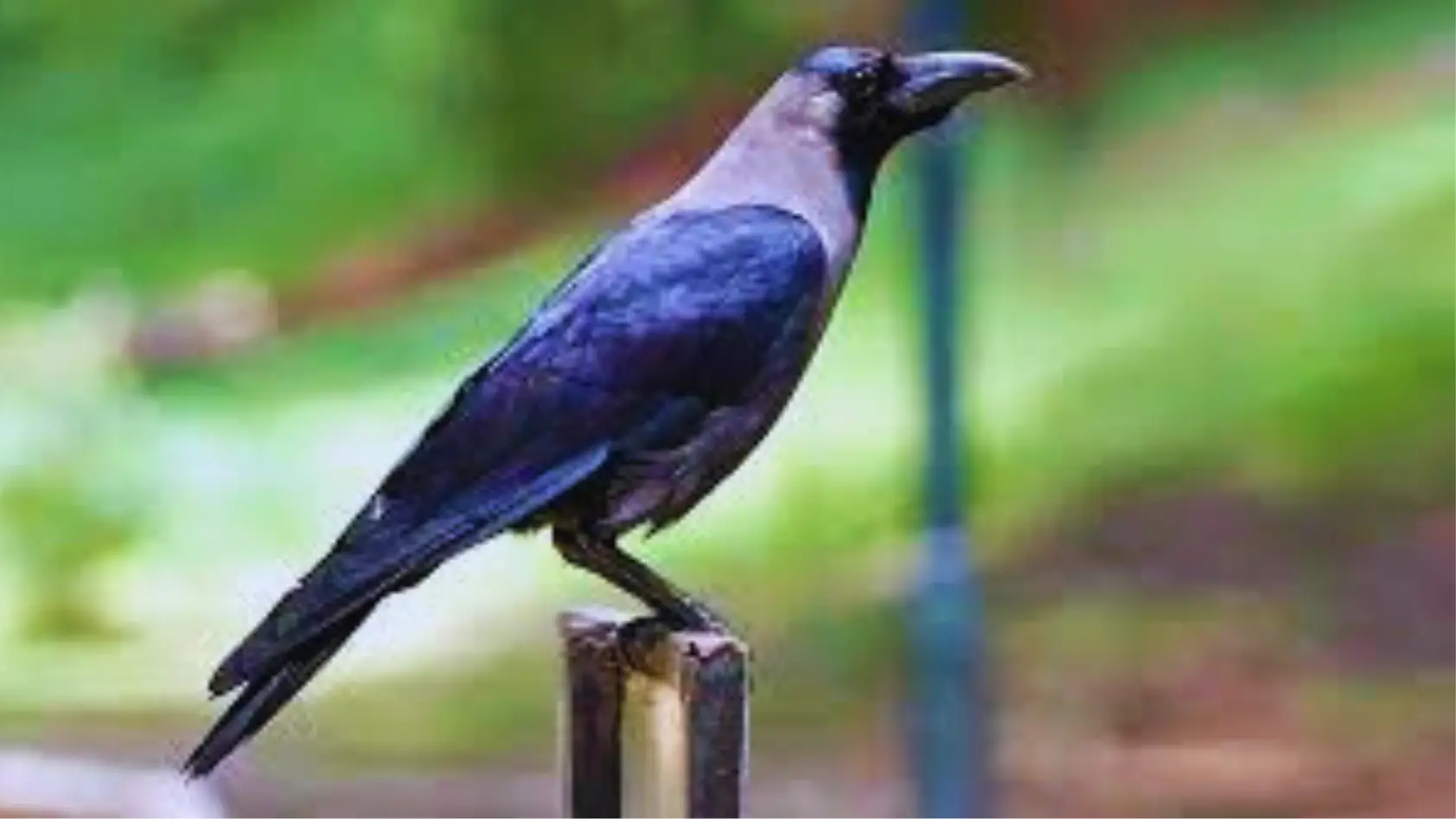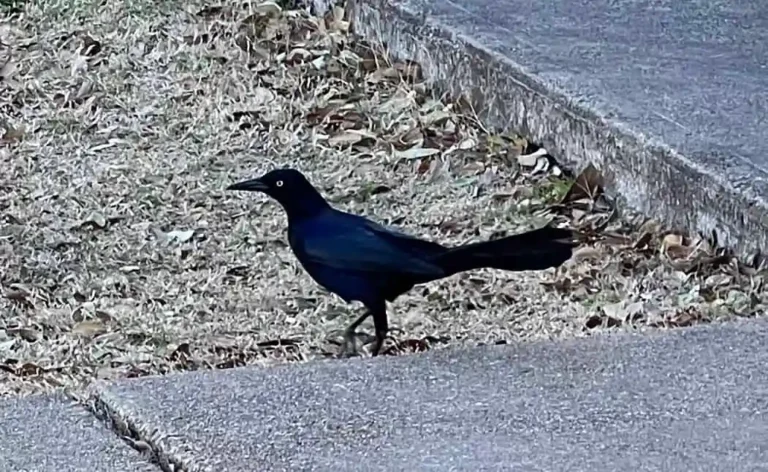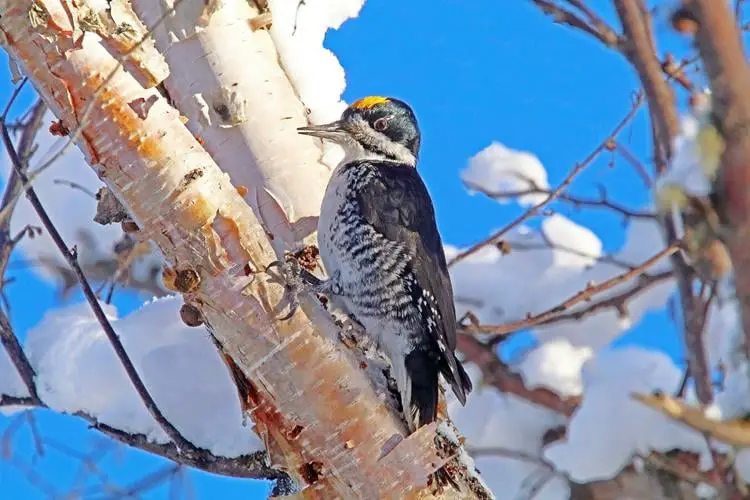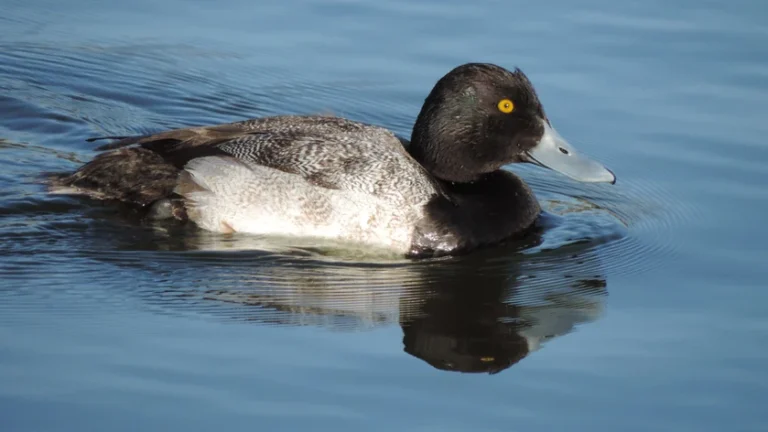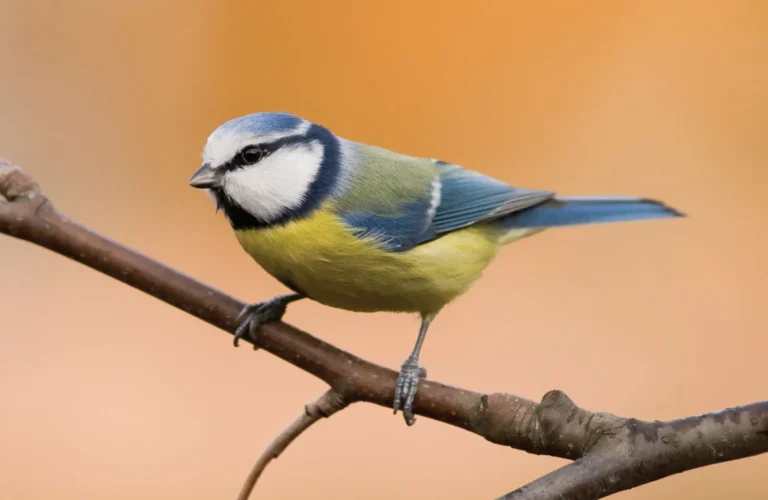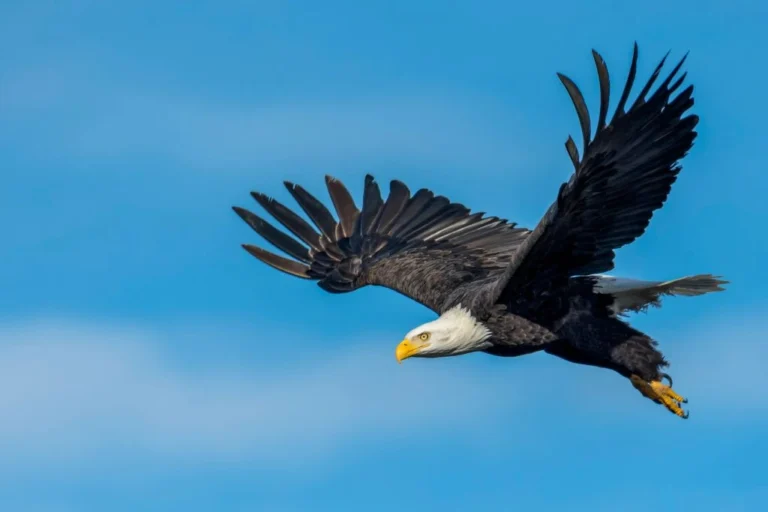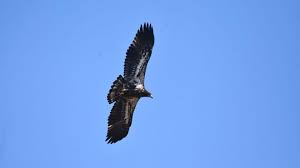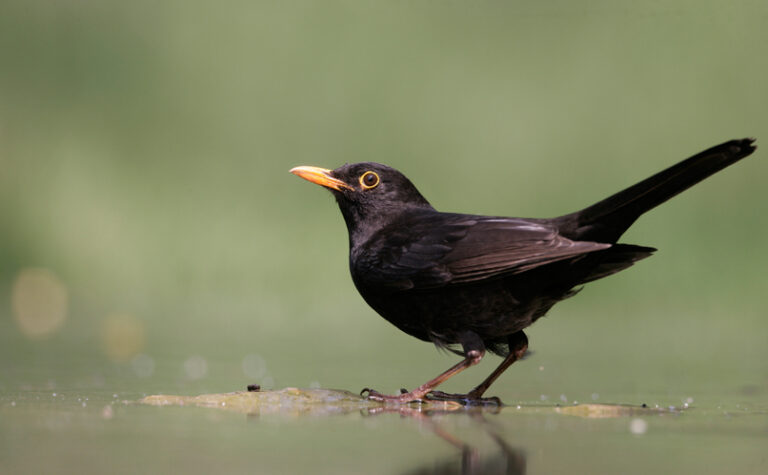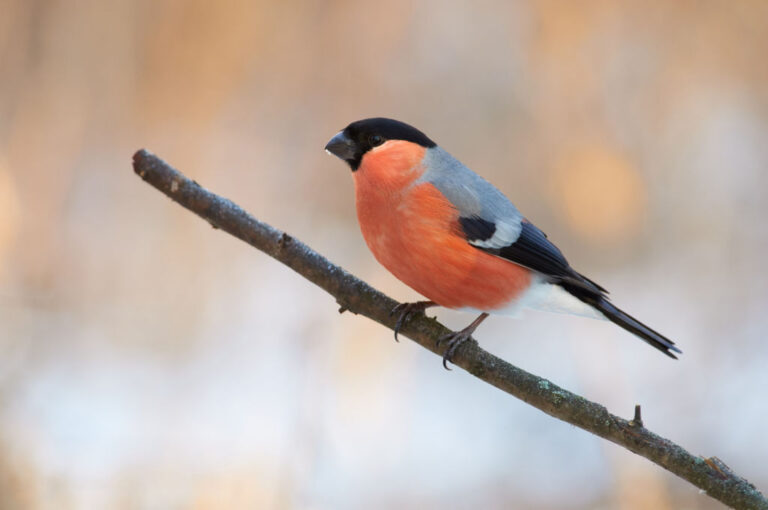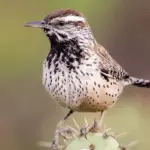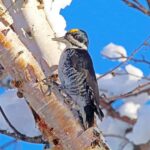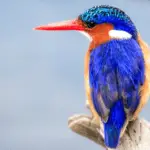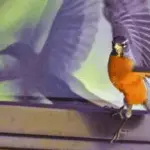Life Span of Crow: Unveiling the Longevity of these Clever Birds
Do you ever stop to consider the remarkable lives unfolding around you? In a world bustling with complex creatures, there is one species that often goes unnoticed, yet possesses a remarkable longevity: the crow.
Yes, those clever, black-feathered avians that flit through the sky and perch upon high branches hold within them a secret that will leave you in awe. Welcome to an exploration of the life span of crows, where we will unveil the mysteries behind their enduring existence.
From their fascinating characteristics to the factors that influence their longevity, we delve into the biology and aging process of these intelligent birds.
Comparisons with other bird species will shed light on the unique nature of crow longevity, while discussions on conservation highlight the importance of protecting their populations.
So, join us on this journey as we unravel the enduring legacy of crows and discover the hidden wonders of their lives.
Key Takeaways
- Crows are highly intelligent birds that can use tools, solve puzzles, and recognize themselves in mirrors.
- Crow longevity is influenced by factors such as social dynamics, habitat quality, and predator interactions.
- Crows can live for over 20 years in the wild, with the oldest recorded crow living for 29 years.
- Urban environments can benefit crows by providing a consistent food supply, fewer predators, and reduced exposure to diseases, leading to extended lifespans.
The Fascinating Characteristics of Crows
Prepare to be captivated by the awe-inspiring traits of crows. These clever birds possess a multitude of fascinating characteristics that set them apart from other species.
Firstly, crows are highly intelligent creatures. They have been known to use tools, solve complex puzzles, and even recognize themselves in mirrors. Their problem-solving skills and ability to adapt to different situations are truly remarkable.
In addition to their intelligence, crows are also incredibly social creatures. They live in tight-knit family groups and communicate with each other using a variety of calls and gestures. They are even known to hold ‘funerals’ for fallen members of their group, gathering together to mourn and pay their respects.
Furthermore, crows have an exceptional memory. They can remember human faces and will often hold grudges against individuals who have treated them poorly. On the flip side, they also have the ability to recognize and remember those who have shown them kindness, often repaying the favor in unexpected ways.
Lastly, crows are highly adaptable birds. They can thrive in a wide range of environments, from urban cities to rural forests. They are opportunistic feeders, able to find nourishment in various food sources, including insects, small mammals, and even garbage.
In conclusion, the fascinating characteristics of crows make them truly captivating creatures. Their intelligence, social nature, exceptional memory, and adaptability set them apart in the avian world. Prepare to be amazed by these clever birds and their incredible traits.
Understanding the Biology of Crows
Get ready to delve into the fascinating world of crow biology, where you’ll discover the intricate workings of these feathered geniuses. Crows, with their jet-black feathers and piercing eyes, possess a remarkable set of characteristics that contribute to their survival and intelligence. Here are some key aspects of crow biology:
- Tool Use: Crows are known for their ability to use tools, such as bending wires to extract food from narrow crevices. This skill showcases their problem-solving abilities and resourcefulness.
- Communication: Crows have a complex system of communication that involves a wide range of vocalizations, each with its own meaning. They can convey danger, food sources, and even recognize individual humans.
- Memory: These clever birds have exceptional memory skills. They can remember faces and places for years, allowing them to navigate their surroundings with ease.
- Social Structure: Crows exhibit a highly organized social structure. They live in extended family groups, where younger crows learn from older ones. This cooperative behavior contributes to their overall success as a species.
Understanding the biology of crows not only reveals their extraordinary abilities but also highlights the importance of preserving their habitats. These fascinating creatures continue to surprise and captivate scientists and bird enthusiasts alike with their intelligence and adaptability. So next time you encounter a crow, take a moment to appreciate the marvels of their biology.
Factors Influencing the Longevity of Crows
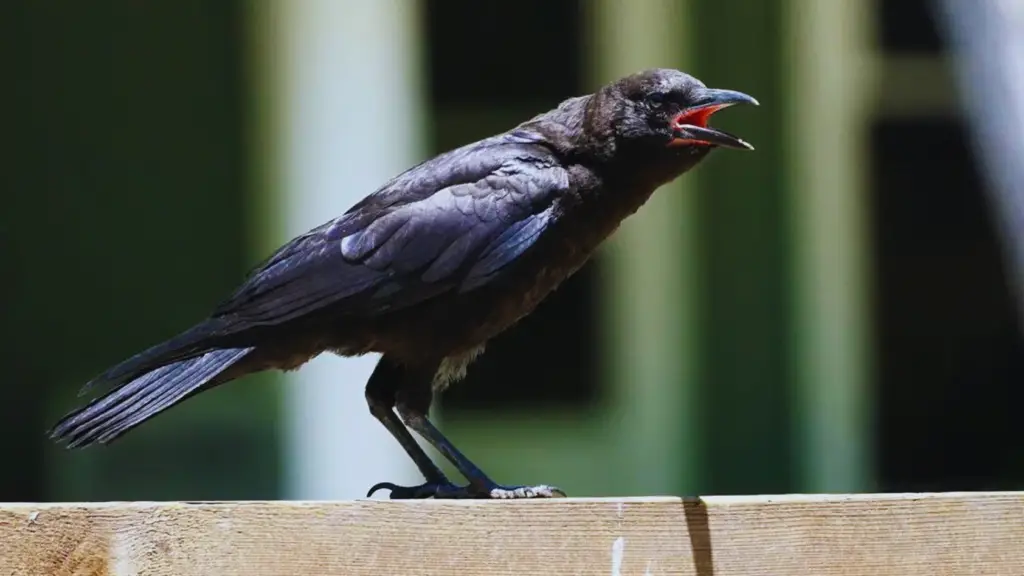
Factors that influence the longevity of crows include their social dynamics, habitat quality, and predator interactions.
Crows are highly social creatures, and their ability to form strong social bonds influences their longevity. Research has shown that crows living in larger groups tend to have a longer lifespan compared to those in smaller groups. Larger groups provide more protection against predators and increase the chances of finding food.
Habitat quality also plays a crucial role in crow longevity. Crows that have access to a diverse range of food sources and nesting sites are more likely to live longer. Urban environments, with their abundance of resources, can actually benefit crows and contribute to their longevity.
However, predators pose a significant threat to crow survival. Crows have complex interactions with predators, and their ability to avoid or defend against them can impact their lifespan.
Understanding these factors gives us valuable insights into the longevity of crows and their ability to adapt and thrive in various environments.
Longevity Records of Crows
Contrary to expectations, crows have been found to surpass previous longevity records in their remarkable ability to adapt and survive in diverse environments. These clever birds have proven to be incredibly resilient, with some individuals living for more than 20 years in the wild. In fact, the oldest recorded crow reached an astonishing age of 29 years!
This longevity can be attributed to several factors.
Firstly, crows are highly intelligent creatures. Their problem-solving skills and ability to learn from their surroundings enable them to navigate through various challenges and find food sources even in difficult conditions. Additionally, their adaptability allows them to thrive in both urban and rural environments, further contributing to their long life spans.
Furthermore, crows have a strong social structure that plays a crucial role in their longevity. They live in close-knit family groups and form lifelong bonds with their mates. This social support system provides protection, cooperation, and shared knowledge, which enhances their chances of survival.
Lastly, crows have impressive immune systems that help them combat diseases and infections. Their robust immune response enables them to ward off potential threats and maintain their health for extended periods.
In conclusion, the longevity records of crows showcase their exceptional ability to adapt, survive, and thrive in diverse environments. Their intelligence, adaptability, strong social structure, and robust immune systems all contribute to their remarkable life spans.
Comparisons with Other Bird Species
When it comes to comparisons with other bird species, crows truly shine in their remarkable adaptability and survival skills. Here are a few examples that highlight just how impressive crows really are:
- Lifespan: Crows can live up to 20 years in the wild, which is double, and sometimes even triple, the lifespan of most bird species. Their longevity is truly exceptional.
- Problem-solving abilities: Crows are known for their exceptional problem-solving skills. They can use tools, recognize themselves in mirrors, and even remember faces of humans who have previously posed a threat to them. Other bird species simply can’t compare in terms of intelligence and adaptability.
- Feeding habits: Crows are omnivorous, which means they can eat almost anything. From insects and small mammals to fruits and vegetables, these birds have a wide variety of food sources. This flexibility gives them a significant advantage over other bird species that may rely on specific types of food.
In conclusion, crows stand out among other bird species with their impressive longevity, problem-solving abilities, and adaptable feeding habits. It’s no wonder they have captured the fascination of humans for centuries.
The Role of Predators and Threats to Crow Lifespan
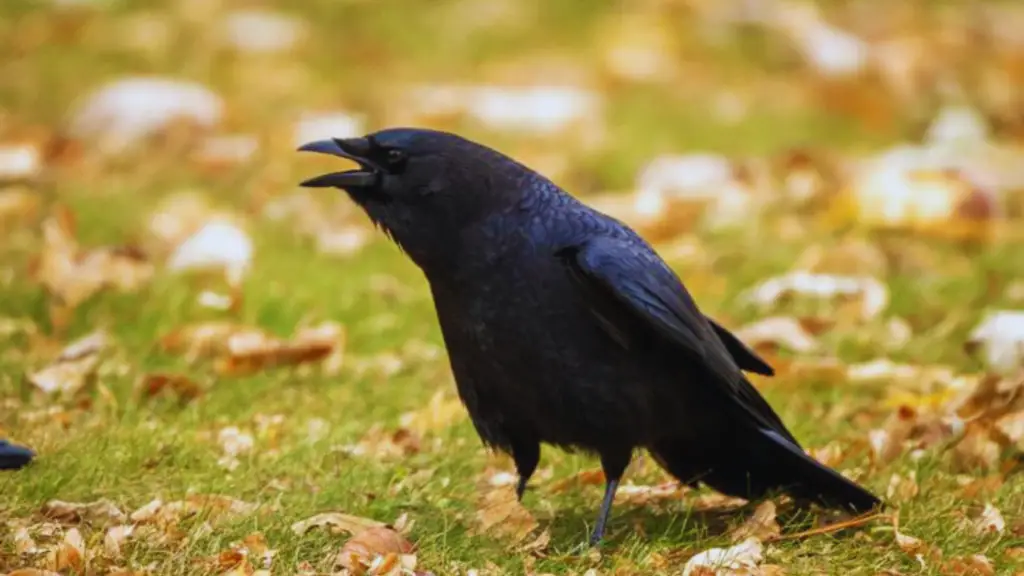
In this subtopic, we will discuss the role of predators and threats to the lifespan of crows.
You will learn about their natural predators and the impact they have on crow populations.
Additionally, we will explore the various threats that are induced by humans and how they affect the longevity of these intelligent birds.
Natural Predators
Watch out for those sharp talons and piercing eyes, because natural predators are always on the prowl for a tasty crow snack! In the wild, crows face a number of threats from various predators.
One of the most common predators is the great horned owl. With its excellent night vision and silent flight, the owl can easily swoop down and snatch a crow from the ground or a branch.
Another formidable predator is the red-tailed hawk. These hawks are known for their powerful talons and keen eyesight, making them highly effective hunters.
Other predators that pose a threat to crows include eagles, foxes, raccoons, and snakes.
Crows have developed various strategies to avoid becoming a predator’s meal, such as mobbing together to intimidate and drive away potential threats. However, even with these defenses, natural predators remain a constant danger to the lifespan of crows.
Human-Induced Threats
Beware the encroaching shadows of human interference, for they cast a dark cloud over the fate of these intelligent creatures. Crow populations face numerous threats at the hands of humans, endangering their long-term survival. Habitat destruction is a major concern, as urbanization and deforestation continue to encroach upon their natural habitats. Pollution also poses a significant risk, as crows are highly susceptible to ingesting harmful substances such as pesticides and plastics. Additionally, human activities like hunting and trapping further contribute to the decline of crow populations. These clever birds are in desperate need of our protection and conservation efforts. Let us not be the architects of their demise, but rather the guardians of their future.
| Human-Induced Threats |
|---|
| Habitat Destruction |
| Pollution |
| Hunting and Trapping |
Crow Lifespan in Urban Environments
Contrary to popular belief, urban environments can actually extend the lifespan of clever crows. While many people assume that cities are detrimental to wildlife, research has shown that crows thrive in urban settings and enjoy a longer life span as a result.
In urban environments, crows have access to a consistent and abundant food supply. Garbage cans, dumpsters, and even human leftovers provide them with a variety of food options, ensuring that they never go hungry. Additionally, urban areas often have fewer predators compared to natural habitats, reducing the risk of predation for these intelligent birds.
Furthermore, crows in urban environments are less likely to be exposed to certain diseases and parasites that commonly affect their rural counterparts. The constant human presence and maintenance in cities tend to limit the spread of such illnesses, leading to healthier and longer-lived crows.
Interestingly, the intelligence of crows also plays a role in their extended lifespan in urban environments. Their ability to adapt and problem-solve allows them to navigate the challenges and dangers of city life more effectively.
In conclusion, urban environments provide crows with ample food, reduced predation risk, and lower exposure to diseases. These factors contribute to an extended lifespan for these clever birds. So, if you ever come across a crow in a bustling city, remember that it likely has a longer and more fruitful life ahead of it than its rural counterparts.
Crow Aging and Senescence
As you age in urban environments, your physical abilities, such as flying speed, can decline by up to 20%. This decline in physical performance is a natural part of the aging process for crows. However, despite this decrease in speed, crows are still able to adapt and thrive in their urban habitats.
Here are three reasons why crows are able to age gracefully in urban environments:
- Intelligence: Crows are highly intelligent birds, known for their problem-solving skills and ability to adapt to new situations. This intelligence allows them to compensate for any physical decline they may experience as they age, finding new ways to navigate their surroundings and secure food sources.
- Social Structure: Crows live in tight-knit family groups, with multiple generations residing in the same area. This social structure provides support and protection for older crows, ensuring they have access to resources and reducing their vulnerability to predators.
- Resource Availability: Urban environments often provide a consistent and abundant food supply for crows. This availability of resources allows older crows to maintain their energy levels and overall health, even as their physical abilities decline.
In conclusion, while aging may result in a decline in physical abilities for urban crows, their intelligence, social structure, and resource availability help them adapt and thrive in their urban habitats.
The Importance of Crow Conservation
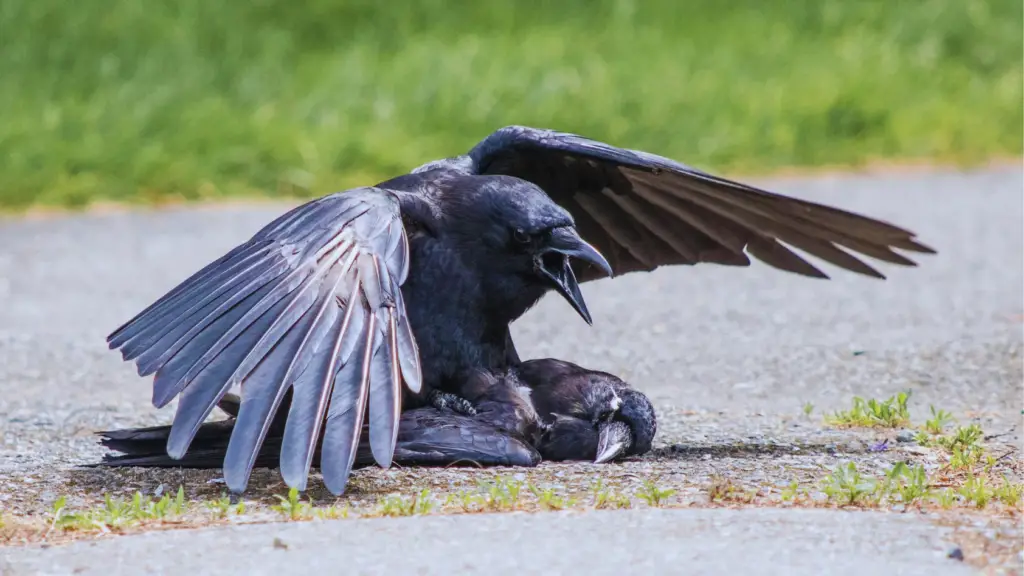
The importance of crow conservation cannot be overstated. Crows play a vital part in our ecosystem due to their intelligence and adaptability. They are excellent scavengers, helping to clean up our environment by feeding on carrion and garbage. This reduces the spread of diseases and prevents the accumulation of waste. Crows are also efficient predators, keeping populations of insects, rodents, and other small animals in check. By controlling these populations, they help maintain the delicate balance of our ecosystems.
Furthermore, crows are important seed dispersers. They consume a variety of fruits and berries, dropping the seeds in different locations while digesting them. This aids in the natural regeneration of forests and ensures the survival of many plant species. Without crows, the dispersal of these seeds would be limited, leading to a reduction in plant diversity.
Conserving crows also has cultural and historical significance. These birds have been a part of human folklore and mythology for centuries, symbolizing intelligence, adaptability, and mystery. They have inspired countless stories, poems, and artworks, enriching our cultural heritage.
In conclusion, by protecting these clever birds, we are not only safeguarding the ecological balance and biodiversity of our planet but also preserving a vital part of our cultural and natural heritage.
How Humans Can Help Protect Crow Populations
To truly spread your wings and lend a helping hand, consider becoming a crow’s advocate and watch as their soaring spirit takes flight. There are several ways in which humans can play a crucial role in protecting crow populations:
- Create a Crow-friendly Habitat: By providing suitable nesting sites and food sources, you can attract crows to your area and help them thrive. Planting native trees and shrubs, installing bird feeders, and leaving out water sources are simple ways to make your surroundings more crow-friendly.
- Prevent Habitat Destruction: Crows often face the threat of habitat loss due to urbanization and deforestation. You can make a difference by supporting conservation organizations that work to protect natural habitats and by advocating for the preservation of green spaces in your community.
- Reduce Pesticide Use: Pesticides used in agriculture can have detrimental effects on crow populations and other wildlife. By choosing organic and pesticide-free products, you can help minimize the exposure of crows to harmful chemicals and promote a healthier environment for them.
- Spread Awareness: Education is key to crow conservation. Share your knowledge about the importance of crows in ecosystems, their intelligence, and the challenges they face. Encourage others to appreciate and respect these remarkable birds.
By taking these steps, you can be an influential force in safeguarding crow populations and ensuring their survival for future generations to admire.
Conclusion: The Enduring Legacy of Crows
Now that you understand how humans can play a crucial role in protecting crow populations, let’s delve into the enduring legacy of these clever birds.
Crows have stood the test of time, captivating our imaginations with their intelligence and adaptability. Their ability to thrive in diverse environments has allowed them to establish a lasting presence in our world.
Throughout history, crows have been revered in various cultures and mythologies. Their exceptional problem-solving skills and complex social structures have earned them a special place in folklore and literature. From Native American legends to the works of Aesop, crows have been portrayed as symbols of wisdom and cunning.
But their legacy goes beyond mere symbolism. Crows have also made significant contributions to scientific research. Their remarkable cognitive abilities and inventive tool-use behaviors have provided valuable insights into animal intelligence and evolution. By studying crows, scientists have gained a deeper understanding of the complexity and diversity of life on Earth.
In conclusion, the enduring legacy of crows lies not only in their cultural significance but also in their scientific contributions. These clever birds continue to captivate our minds and inspire awe with their remarkable abilities. As we strive to protect their populations, let us also appreciate the enduring legacy they leave behind—a testament to the remarkable resilience and intelligence of these incredible creatures.
Life Span of Crows FAQs
What are some interesting behaviors or habits of crows?
Crows have fascinating behaviors and habits. They are known for their intelligence, problem-solving skills, and ability to use tools. They also have complex social structures and can recognize individual humans.
How do crows communicate with each other?
Crows communicate with each other using a combination of calls, body language, and gestures. They can convey specific messages, warn of danger, and even recognize individual crows by their unique vocalizations.
What are the different species of crows and how do they differ from each other?
There are numerous species of crows, each with distinct characteristics. From the mischievous American Crow to the elegant Hooded Crow, they differ in appearance, behavior, and habitat.
Do crows migrate or stay in one place throughout their lives?
Crows are known to migrate, moving from one place to another during different seasons. They don’t stay in one place throughout their lives. Migration helps them find food and suitable habitats for nesting and breeding.
Are crows considered to be intelligent birds and if so, what are some examples of their problem-solving abilities?
Crows? Oh, they’re the brainiacs of the bird world! They solve problems like a pro, using tools, teamwork, and even mirrors. These clever creatures will astound you with their ingenuity and intellect.
Conclusion
Life Span of Crow: Unveiling the Longevity of these Clever Birds
So there you have it, the fascinating world of crows and their astounding longevity.
Next time you see a crow perched on a tree branch or soaring through the sky, take a moment to appreciate the incredible lifespan of these clever birds.
Remember, their endurance and resilience serve as a testament to the wonders of nature. And perhaps, just perhaps, we can learn a thing or two from these remarkable creatures.
So go out there, protect the crows, and help ensure their enduring legacy in our world.

